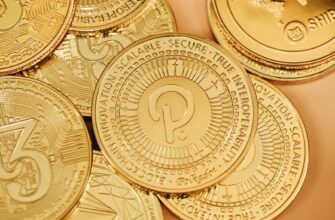🎮 Level Up with $RESOLV Airdrop!
💎 Grab your free $RESOLV tokens — no quests, just rewards!
🕹️ Register and claim within a month. It’s your bonus round!
🎯 No risk, just your shot at building crypto riches!
🎉 Early birds win the most — join the drop before it's game over!
🧩 Simple, fun, and potentially very profitable.
As NFTs (Non-Fungible Tokens) continue transforming digital ownership, Canadian investors face crucial tax obligations when selling these assets. Understanding how to properly report and pay taxes on NFT profits in Canada is essential to avoid penalties and ensure compliance with the Canada Revenue Agency (CRA). This comprehensive guide breaks down everything you need to know about NFT taxation.
- Are NFT Profits Taxable in Canada?
- How the CRA Classifies NFT Transactions
- Step-by-Step: Calculating NFT Taxable Profit
- Reporting NFT Profits on Your Tax Return
- Deductible NFT Expenses in Canada
- Essential NFT Record Keeping
- NFT Tax FAQ: Your Top Questions Answered
- Do I pay tax if I sell NFTs at a loss?
- Are free NFT airdrops taxable?
- What if I trade NFTs for other crypto?
- How does the CRA track NFT profits?
- Can I use crypto tax software?
- Proactive Tax Planning Tips
Are NFT Profits Taxable in Canada?
Yes, the CRA treats NFTs as taxable property similar to cryptocurrencies or stocks. When you sell an NFT for more than your original cost (including acquisition fees), the profit is subject to Canadian income tax. How it’s taxed depends on whether your activity qualifies as:
- Capital Gains: For occasional investors (50% of profit taxed)
- Business Income: For frequent traders (100% of profit taxed at marginal rates)
How the CRA Classifies NFT Transactions
The CRA evaluates your intent and activity level to determine tax treatment. Key factors include:
- Frequency of transactions (daily/weekly trading suggests business activity)
- Knowledge of NFT markets (professional expertise indicates business)
- Time commitment (significant hours imply business operations)
- Relationship to other income sources (NFTs as primary income = business)
Most casual collectors qualify for capital gains treatment, while professional flippers typically fall under business income rules.
Step-by-Step: Calculating NFT Taxable Profit
Follow this process to determine your NFT tax liability:
- Determine Cost Basis: Purchase price + acquisition costs (gas fees, platform commissions)
- Calculate Proceeds: Sale price minus disposal fees
- Compute Gain/Loss: Proceeds – Cost Basis
- Apply Tax Treatment:
- Capital Gains: 50% of profit added to taxable income
- Business Income: 100% of profit added to taxable income
Example: You bought an NFT for 1 ETH ($2,000) + $50 gas fee. Later sold for 3 ETH ($6,000) minus $100 platform fee.
Cost Basis = $2,050
Proceeds = $5,900
Profit = $3,850
Capital Gains Taxable Amount = $1,925 (50% of $3,850)
Reporting NFT Profits on Your Tax Return
Where to report depends on your classification:
- Capital Gains: Schedule 3 (Capital Gains) of your T1 return
- Business Income: Form T2125 (Statement of Business Activities)
- Losses: Capital losses offset capital gains; business losses reduce overall income
Always convert NFT values to Canadian dollars using Bank of Canada exchange rates on transaction dates.
Deductible NFT Expenses in Canada
You may offset profits with eligible expenses:
- Gas/network fees for transactions
- Platform commissions and minting costs
- Wallet and security expenses
- Professional fees (accountants, tax advisors)
- Home office expenses if NFT trading is your business
Note: Business filers can deduct more expenses than capital gains reporters.
Essential NFT Record Keeping
Maintain detailed records for 6 years including:
- Transaction dates and timestamps
- Wallet addresses and blockchain IDs
- CAD values at transaction time
- Receipts for acquisition costs
- Screenshots of sale confirmations
NFT Tax FAQ: Your Top Questions Answered
Do I pay tax if I sell NFTs at a loss?
Yes, report capital losses on Schedule 3. These can offset capital gains from other investments or be carried forward indefinitely.
Are free NFT airdrops taxable?
Yes. The CRA considers airdrops income at their fair market value when received. You’ll pay tax on this value when selling.
What if I trade NFTs for other crypto?
Barter transactions are taxable events. You must report the CAD value of the crypto received as proceeds and calculate gain/loss on the NFT disposed.
How does the CRA track NFT profits?
Through crypto exchange reporting (under Section 233.3 of Income Tax Act), blockchain analysis, and audit processes. Non-compliance risks penalties up to 200% of taxes owed plus interest.
Can I use crypto tax software?
Absolutely. Tools like Koinly or CoinTracker automatically calculate Canadian NFT tax obligations by syncing with your wallets and exchanges.
Proactive Tax Planning Tips
- Consult a crypto-savvy accountant before year-end
- Time strategic sales to utilize capital loss carryforwards
- Document all transactions immediately
- Consider holding NFTs over 12 months (though no special treatment)
- Review provincial tax brackets for optimal selling strategies
Failure to report NFT profits can result in gross negligence penalties of 50% of unpaid tax plus daily compound interest. When in doubt, disclose transactions voluntarily through the CRA’s Voluntary Disclosures Program to potentially reduce penalties.
Disclaimer: This guide provides general information only. Consult a qualified Canadian tax professional for personalized advice regarding your NFT transactions.
🎮 Level Up with $RESOLV Airdrop!
💎 Grab your free $RESOLV tokens — no quests, just rewards!
🕹️ Register and claim within a month. It’s your bonus round!
🎯 No risk, just your shot at building crypto riches!
🎉 Early birds win the most — join the drop before it's game over!
🧩 Simple, fun, and potentially very profitable.








